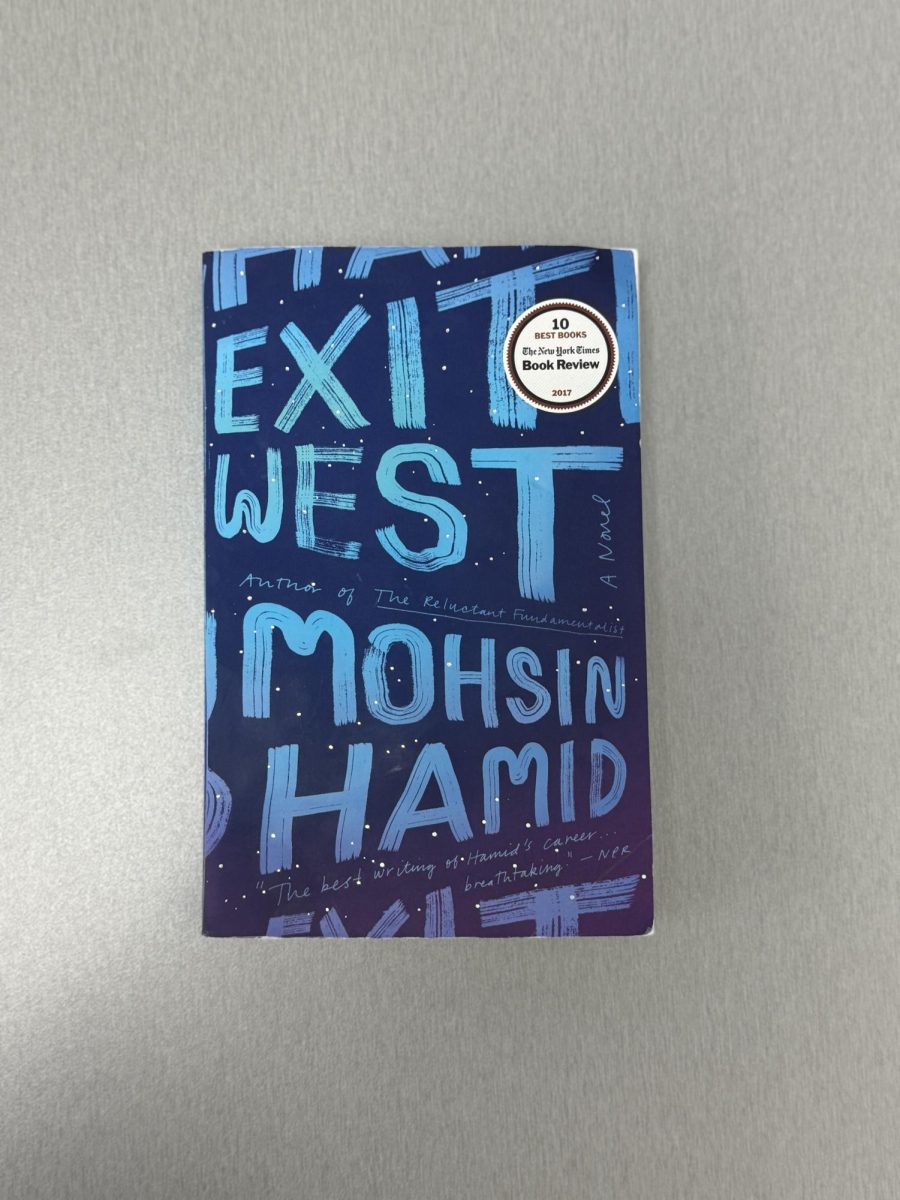Moshin Hamid is a British-Pakistani novelist and writer who has written several books. He is known for his works including The Reluctant Fundamentalist, How to Get Filthy Rich in Rising Asia, and The Last White Man. The 53-year-old was born in 1971 in Lahore, Pakistan, before moving to America. Afterwards he moved back to Pakistan, returned to America, then relocated to the United Kingdom, and finally back to Pakistan. He attended Princeton University where he took courses in the University’s creative writing program. Hamid also attended Harvard Law School and worked in management consulting before becoming a full-time writer. His novels have won over 15 awards such as the Betty Trask Award, Tiziano Terzani International Literary Prize, and New York Times Notable Book of the Year, just to name a few. His novels have also been shortlisted for multiple awards, including the Man Booker Prize for Fiction and the International IMPAC Dublin Literary Award.
Moshin Hamid’s fourth novel, Exit West is an engrossing depiction of the departure and arrival aspects of migration. The novel tells a fictional story of two young lovers, Saeed, a religious, traditional man who prays often and values family overall, and Nadia, an independent, unconventional woman who lives on her own and refuses to submit to the expectations of her culture, who meet in their unnamed home country in the Middle East. Around the world, magical doors begin to appear that, when stepped through, can bring one to a random location around the world instantly.
As Saeed and Nadia’s country undergoes a gruesome and chaotic civil war, the pair use the doors to escape and explore new places to settle. This is no vacation for the two. There are countless challenges, such as leaving behind their home, the guarding of the magical doors, countries’ apparent and aggressive resistance towards the influxes of migrants, and their opposing values and beliefs. These issues complicate the integrity and stability of them both as a couple, and as individuals, as they struggle to adjust to their new settings.
Moshin, being a migrant himself, always knew he was going to write a novel about migration. He had specific goals for what he wanted the story to accomplish, including normalizing and expanding the reader’s perspective on migration, directing focus to the departing and arriving factors of migration, and highlighting the concept and relevance of time-space compression.
Much of the world views migrants as a problem. Nations resist migrants because of different things like overpopulation, crime-related stigmas, or even racist prejudices. Moshin would argue that this tension has to come to a stop, as people will always be moving. Whether it is due to rising sea levels, cost of living, or civil wars, it is important that society starts becoming comfortable with, as Moshin puts it, “The inevitable reality, of a world where billions of people are going to move in the next couple of hundred years.”
While the story takes the reader through obvious instances of Saeed and Nadia being unwelcomed or suppressed in their new environments because they are migrants, Moshin also presents a couple of concepts to challenge the idea of nationalism and nativeness in order to normalize migration. First, having magical doors that can instantaneously and limitlessly bring one from one part of the world to another challenges the idea of a nation. The only thing that truly defines a nation is its borders. However, the magic of the doors does not abide by the borders. The purpose of this element may seem irrelevant, as magical doors do not exist in reality. But Moshin insists that because distance is collapsing, through increasing technology like airplanes or the internet, giving one the ability to be in a completely new place, those doors almost do exist.
Next, Moshin tells the story of an old woman in Palo Alto, who despite having lived in the same place and in the same house for 80 years, felt as though she were a migrant, as her environment had completely changed over time. The third-person omniscient point of view in this story allows the reader to hear insight or philosophical ideas from the narrator, and to conclude this segment of this old woman’s stop. The narrator says, “We are all migrants through time” (Hamid 209). The idea that both people who do and don’t move are migrants forces acceptance as this implies that every single person is a migrant. The inclusion of magical doors, and the take that even staying in the same place makes one a migrant, reinforce Moshin’s goals of normalizing migration. These components allow the reader to think about what it means to be a nation in the first place and how everyone is a migrant.
Oftentimes, there is much emphasis on the way in which a migrant arrived, but little regard is given to what it was like for them to leave their home and how they adjusted and survived in the place they arrived, leaving these aspects underrepresented in literature. In order to focus on these aspects, Moshin eliminated the need to depict how Saeed and Nadia arrived by including an element of magical realism, using doors to serve as portals. This way, Moshin can stress the feelings of Saeed when leaving behind his father and apartment, or the reasons Nadia adapts to her new environment by joining an elderly, all-Nigerian council in the house where she and other migrants are residing. The element of magical realism serves to complete Moshin’s goal of keeping attention on the parts of the migrant experience, departing and arriving, that often get overlooked or forgotten because of the focus on the transportation journey.
Time-space compression is an increasingly relevant subject in today’s society. Time-space compression refers to how the world is seemingly compressing, through things like increased transport, communications, and lower costs, making the distance between places seem less. This concept is represented through the magical doors. Moshin found it so important that he imagined a future where anything is possible, and where migrants do have the ability to live anywhere. Moshin wanted to write in response to the tension he felt from countries with people who were looking to get out, and countries who did not want to let people in. The concept of time-space compression presented in the book helps readers understand that this tension is going to work.
As a migrant, Moshin wanted to explore topics such as the resistance towards migrants, the migrant experience, and time-space compression, as they are very prevalent in our world and need to be addressed. Moshin uses abstract and philosophical concepts, as well as existing phenomena to provoke discussion. He accomplishes his goal of making readers aware and comfortable with the current and future state of the world.












































